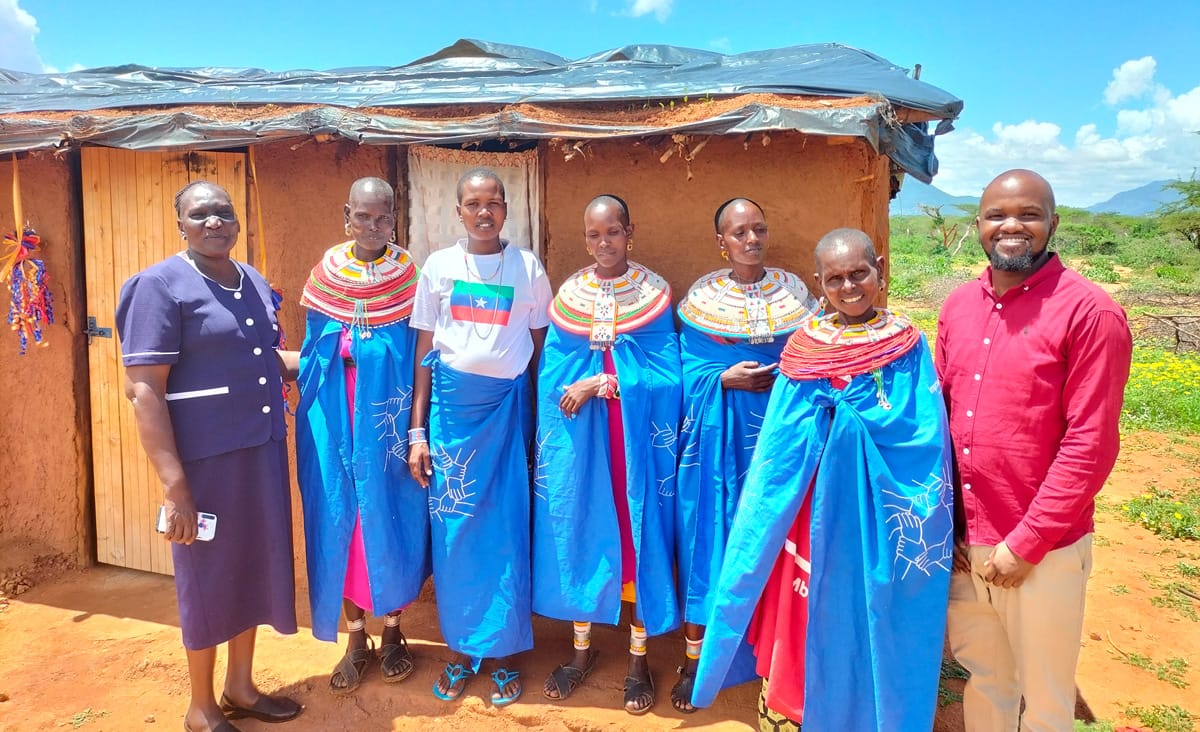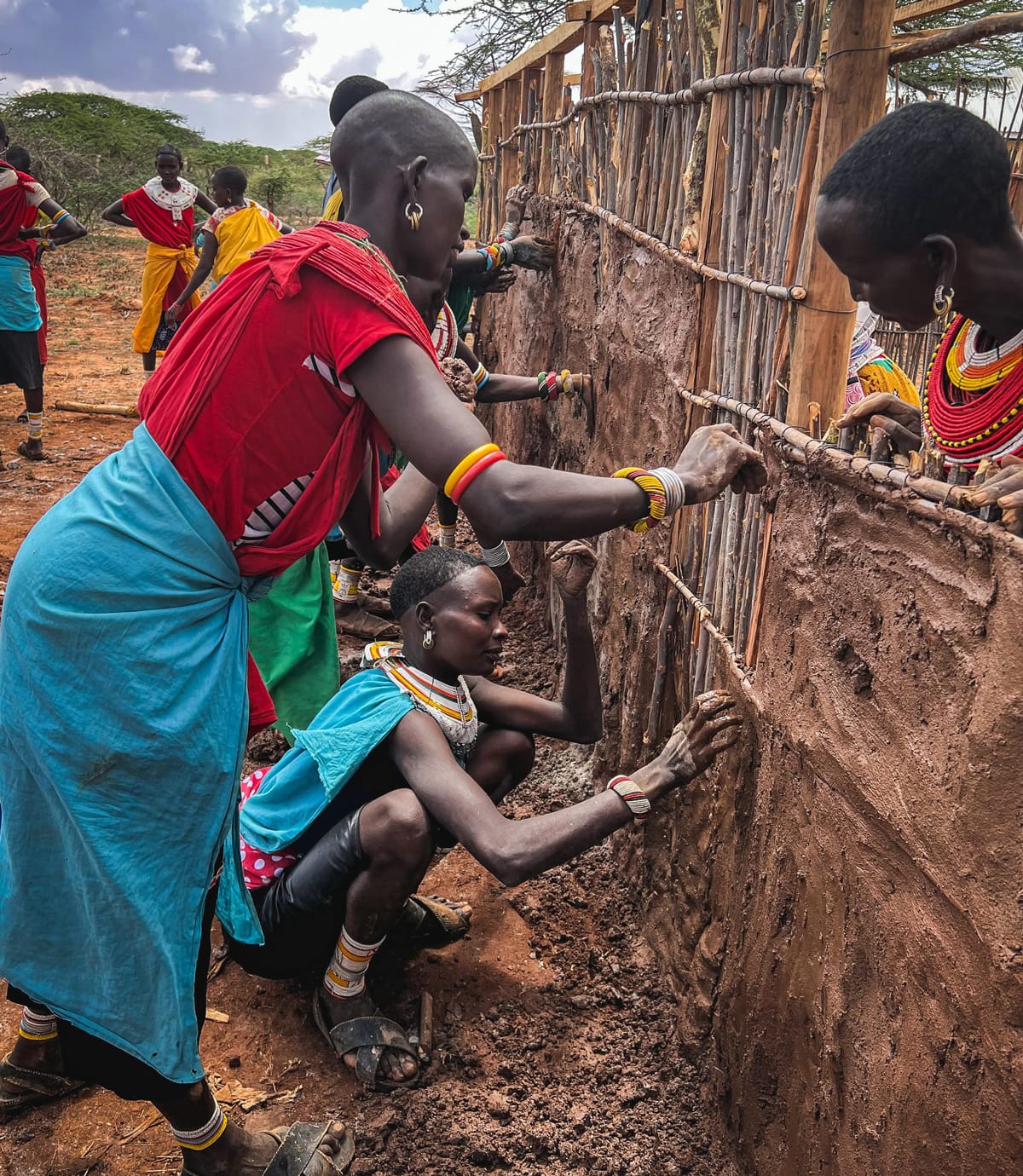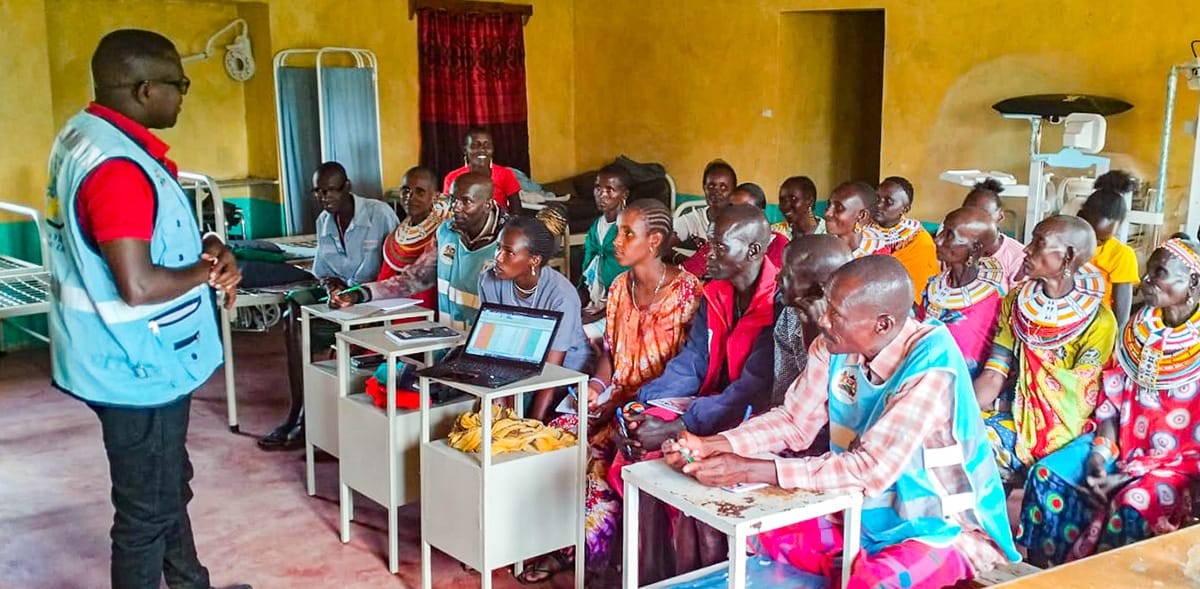Ngilai Health Training: Integrating modern and traditional birth practices to ensure safe and culturally relevant health care

Community members with Walter Lenolngenje (right), Thriving Futures Program Coordinator in Northern Kenya, outside the completed maternity shelter in 2022 | Legado
In 2021, community members in Ngilai, Northern Kenya, came together to create their Legacy Plan. One of their priorities centered on community health, specifically, increasing access to health care while respecting traditional Samburu medicine.
Led by this priority, the community came together to construct a new maternity shelter, which allowed women to give birth safely with the support of traditional birth attendants coupled with better access to medical supplies maintained by the team at the Lolkuniyani Dispensary. Not long after, through the support of local partner, the community decided to grow a community garden at the maternity shelter to ensure healthy, vitamin-rich food is available for mothers and their children.

Many members of the community came together to build the maternity shelter | Legado
When women in Ngilai become pregnant, they have access to both Community Health Promoters (CHPs), who are trained community members working as a link between the community and formal health facilities, and Traditional Birth Attendants (TBAs). Both are committed to the larger health of their communities; however, they have different approaches, training, and access to resources.
In June 2024, Legado’s Nkishon Supat e Ngilai team helped the community facilitate a joint health training for 31 CHPs and 29 TBAs. This included individuals offering maternity care to 10 villages in Ngilai and 5 villages in Lolkuniyani. Because of the training, both CHPs and TBAs have more information to work together on promoting immunization, tracking for malnutrition, and encouraging community support for the first 6 months of an infant’s life.
This five-day training covered topics related to pre and postnatal care, reproductive health, community maternity care, adolescent health, and more. Though each group maintains its own unique perspective, both are better equipped to facilitate maternity care that respects Samburu culture and integrates modern medical knowledge.
And, thanks to the training, villages located further away from hospitals or the maternity shelter have more local support available, right where they live.

John Lenaiyara, Samburu East Sub-County Community Health Coordinator, facilitates a training session on maternal and newborn care | Legado
Like all community priorities, this emphasis on maternal health improves intersects with all other aspects of life:
- Environment: TBAs use traditional medicines in their work, so maintaining their community role incentivizes the protection of land where medicinal plants grow.
- Education: The training is supporting a growth in community members learning and practicing traditional medicine integrated with modern medicine.
Culture: this type of integrated training maintains the important role of traditional birth attendants in the community, while empowering them to support modern medical care when needed. It also encouraged CHPs, who have access to all the households in their designated area, to connect older mothers with new mothers, encouraging the intergenerational sharing of cultural information, decreasing isolation, and offering support, all of which helps reduce infant mortality rates.
Livelihoods: Medical bills are the third highest expense for most households, after school fees and food. With both TBAs and CHPs in the community, families have better access to affordable health services. In addition, the role of TBAs, now Skilled Birth Companions, is a source of income.
- Health: CHPs, who are less connected to the maternity shelter than TBAs, were encouraged to set mothers up with food baskets from the community garden, meaning mothers and pregnant women don’t have to travel long distances to access healthy, vitamin-rich foods.
“I have been receiving personal calls telling me it was the best training they’ve ever had! The traditional birth attendants and CHPs saw it as a way to work together, and it honors this culture to see both working together.”
The long-term benefits of this type of integrated training include strong community cohesion, a drop in infant mortality rates and malnutrition, and an integrated approach to health that tends to the whole person, their community, and their landscape.
